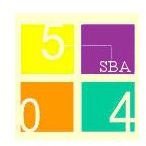Creating a Checklist for Starting a New Business
Starting a small business requires certain steps to be taken, which may not apply to every business; depending on the nature of business one plans to undertake. Making a checklist for starting a new business and scrupulously working through each item on the list will help ensure every aspect of any new small business idea is established and incorporated into the business.
Find a free start-up checklist for a new business in our Media Gallery.
In the following sections you’ll find some important elements contained in the checklist.
Business Plan
A business plan is required in order to obtain finances. The business plan must clearly explain the nature of the business, as well as the products and/or services the company plans to offer. The business plan checklist can help begin to outline a business plan.
Outline the business exactly how the company currently or plans to operate and clearly explain how the funding requested will be used. Assess the competition in the particular business industry or niche market the business is in and develop a clearly stated strategy on how the company will the place the product and/or service to the market, all the way to the customers.
A complete business plan will be very helpful if the business is planning to look for venture capital as financiers will always ask for such details. Providing as much information as possible in every section of the business plan will give investors the best overview of the company and insight to where their money will be used to create their long-term return on their investment.
Legal Entity
Decide on the incorporation of the business. Forming it as a company with limited liability will enable one to dissociate any personal assets from the debts and liabilities of the business. There are also certain tax advantages with LLCs and S Corporations as they are pass-through entities. All this is done best with the guidance and help from a professional, so the finer points are addressed correctly.
While the business is in the start-up phase, look for attorneys and accountants to help the business through legal processes and begin developing a relationship with them; so they can be trusted to help the business in the future. Look for people who have experience in the type of industry the business is going to enter, as the professionals previous exposure could be a good asset for the development of the business.
Tax Identification Numbers
A new business should apply to the Federal Government for an employer identification number which will separate the business from any personal property. Some states also require similar identification numbers to obtained separately from the state’s government, so be sure to check with local governments.
Bank Accounts
It’s important that business finances are kept separate from personal accounts, so open a separate bank account for the business. The owner will be required to submit to the bank all papers concerning the incorporation of the business, if they have incorporated the business. This would also include aspects regarding the location of the business, persons authorized to handle the account and sometimes also resolutions of the board of directors if one has been formed. It is best for the business to talk with its bank and ask them to provide advice on the requirements for opening the bank account.
Loans
Another important item that should be included in a checklist for starting a small business is to approach the Small Business Association (SBA) and get their advice regarding the possibility of getting external funding along with other sources that can help, such as SCORE. A local bank near the new small business can also help, if the owner is able to convince them of the viability of the business. There may be some need to provide personal guarantees before loans are received.
Permits and Licenses

Check on the various permits and licenses that are necessary for the business to operate where it will be located. Take the advice of statutory authorities and ensure the company complies with all necessary requirements. The attorney of the business can help with this and be sure to check with your municipality on any other licenses required. A sales tax and department of labor license or number will also be required if you sell retail items and charge tax and if the business will have employees.
Insurance
Insurance is mandatory and will depend on the nature of the new small business. A local insurance agent is the best guide to help a new small business find the best insurance policy. Employment insurance and worker’s compensation may also be required for the business.
Setting Up the Business
Set up accounts, inventory and HR procedures, so the company has a clear image of how everything will function. See if the owner can establish a line of credit that can help the business buy materials on credit. This may be difficult initially, but as long as the owner and the company establishes themselves as reliable investment opportunities, other businesses themselves will begin trying to help the business to gain the necessary credit. Make sure the company has a clear marketing plan and prepare all the materials needed to launch an advertising campaign in the media, where products and/or services will normally be marketed to the customers based on similar, already established products and/or services.
Once a new small business has taken all these steps, the company will be more organized and prepared for the road ahead.
Sources
References:
Internal Revenue Service (IRS). Checklist for Starting a Business. (3/7/2011) - https://www.irs.gov/businesses/small/article/0,,id=98810,00.html
Images Credits:
- Wikimedia Commons - https://commons.wikimedia.org/wiki/File:Logo_Marketing_Small_Business_Finanace_Corp.jpg
- hinnamsaisuy - https://www.freedigitalphotos.net/images/Office_and_Stationer_g145-Brown_Note_Paper_p32023.html
This post is part of the series: Entrepreneurship: Starting a New Business
The articles featured in this series will go through many aspects of becoming a new entrepreneur and the process of starting a new small business. Also, get access to free working examples and template downloads!
